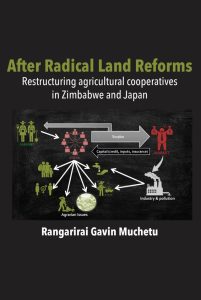Publisher: Langaa RPCIG, Cameroon
Pages: 278
Year: 2010
Category: Economic Reforms, Economics
Dimensions: 216 x 140 mm
Civil Society and Agro-Industry in Anglophone Cameroon’s Plantation Economy
This book discusses the social and political consequences of the economic and financial crisis that befell African economies since the 1980s, using as case study the plantation economy of the Anglophone region of Cameroon. The focus is thus on recent efforts to liberalize and privatize an agro-industrial enterprise where overseas capital and its domestic partners have converged, the consequent modes of production and labour, and the alternatives proposed and resistance generated. The study details how the unprecedented crisis caused great commotion in the region, and presented a serious challenge to existing theories on plantation production and capital accumulation. The crisis resulted in the introduction of a number of neoliberal economic reforms, including the withdrawal of state intervention and the restructuring, liquidation and privatisation of the major agro-industrial enterprises. These reforms in turn had severe consequences for several civil-society groups and their organisations that had a direct stake in the regional plantation economy, notably the regional elite, chiefs, plantation workers and contract farmers. On the basis of extensive research in the Anglophone Cameroon region, Konings shows that these civil-society groups have never resigned themselves to their fate but have been actively involved in a variety of formal and informal modes of resistance.
£44.00
About the author
Piet Konings is a sociologist of development and a senior researcher at the African Studies Centre in Leiden (The Netherlands). He has published widely on socio-political and economic developments in Ghana and Cameroon. His most recent books include Trajectoires de Libération en Afrique Contemporaine (Karthala, 2000), Negotiating an Anglophone Identity: A Study of the Politics of Recognition and Representation in Cameroon (Brill, 2003), and Crisis and Creativity: Exploring the Wealth of the African Neighbourhood (Brill, 2006).
Review
“A fascinating account of the agrarian crisis in the plantation economy in Cameroon, against the background of reform, privatisation and the response by unions and cooperatives in providing support for livelihoods on the edge. A must read for all those interested in the political economy of agrarian reform.”
Professor Pradip Thomas, University of Queensland, Australia
“Piet Konings has illuminated the Anglophone Cameroon experience for decades, from labour conditions to identity politics. The writings here connect his work and add that terrain to the broad sweep of contemporary African studies, and will guide all future scholarship on the region.”
Milton Krieger, Professor Emeritus, Western Washington University, USA
Esendugue Greg Fonsah is a Traditional Ruler (Chief), and Professor, Research, Extension and Instruction (REI) Coordinator, Department of Agricultural and Applied Economics, University of Georgia, Tifton Campus, USA and the Chancellor, FOMIC Polyclinic University, Cameroon, Central Africa.
Esendugue Greg Fonsah
“Konings presents a well-written history of civil society and the Anglophone Cameroonian plantation sector…”
Canadian Journal of African Studies

